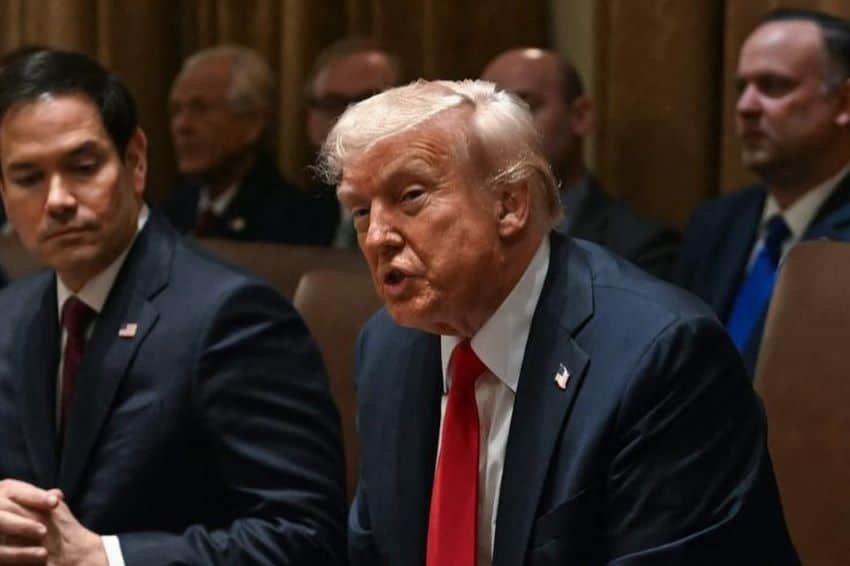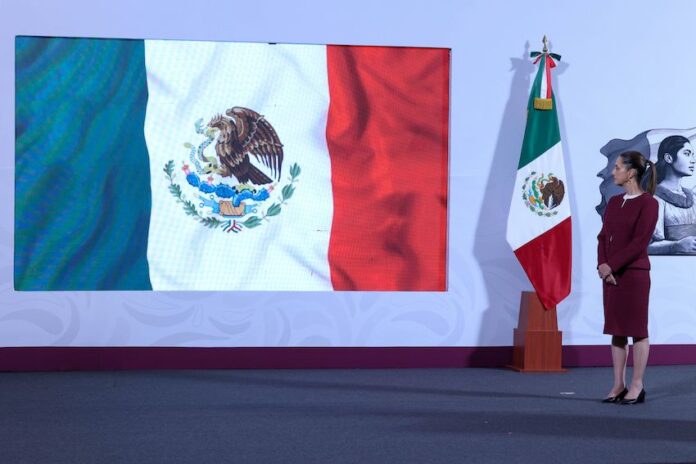In 2025, U.S. President Donald Trump’s tariffs represent an unprecedented threat to Mexico’s economy and manufacturing industry.
But, the potential for the door to close on easy access to the United States’ market for vehicles, auto parts and other manufactured goods should be a wake-up call for Mexico’s politicians and business leaders.

Mexico needs to seize this moment to focus on embracing digital marketing, expanding local e-commerce sales and working to diversify away from labor-intensive manufacturing into high value-added service exports in fields such as software design, engineering and tech support.
The glimmering glass and steel office towers, modern shopping complexes, and luxury apartment buildings that abut the business districts of Mexico City, Monterrey and Guadalajara are a striking visual reminder of the benefits Mexico’s economy has reaped during the modern era of free trade and export-focused industrialization, which began with Mexico’s entrance into NAFTA in 1994.
In 2023, exports accounted for 36% of Mexico’s GDP, with a comparable result expected for 2024. But in 2025, the Trump administration is threatening new tariffs that could reshape North American supply chains and cripple what has become Mexico’s most successful economic sector.
As of April 3, vehicles exported from Mexico to the U.S. are subject to a 25% tariff — sort of. The OECD estimates Mexico’s economy could contract by as much as 1.3% in 2025.
Mexico only major economy projected to shrink in 2025, IMF report shows
Moving forward, it remains unclear whether global firms will continue to invest in manufacturing in Mexico if exports to the U.S. are saddled with permanent new punitive tariffs.
Up until this point, Mexico has defended the NAFTA-era status quo. Yet, the current moment offers an opportunity for President Sheinbaum to shift toward an economic model that ensures resilience in the face of short-term external threats and positions the country for long-term growth.
President Sheinbaum’s National Development Plan for 2025-2030 does promise to focus on making Mexico a center for “technology and innovation,” but it does not specifically mention the words “nearshoring” or “English.”
Overall, Sheinbaum’s plan puts a heavy focus on improving the highways and railroads used for shipping physical products out of the country but still lacks the inclusion of service sector exports. Trump’s tariffs provide a new incentive for Mexican companies to follow the successful examples of local firms such as UPAX and Unosquare in focusing on the niche of high-value-added service sector exports.
Rather than specializing in providing low-cost workers for labor-intensive processes, Mexican firms should invest in exporting business services.
Indeed, clusters of service-exporting firms are growing across Mexico. Thousands of English-speaking digital nomads already live and work remotely from cities like Mexico City and Guadalajara and other locations in Mexico, providing professional services.
Mexico should be doing more to cultivate this type of economic activity domestically.
Mexico City’s tuition-free university to expand nationwide under new decree
To support this transition, Mexico’s federal government is investing significantly in education, specifically targeting secondary education.
This push aims to prevent students from dropping out before graduation and help young people develop technical and digital skills. The goal in Mexico should be to help connect students with opportunities to gain professional skills in tech-heavy fields. Schools need to prepare students for an increasingly digital future.
Many entrepreneurs in Mexico are already taking advantage of e-commerce. Young professionals in Mexico can see the ways platforms like WhatsApp, Facebook and TikTok are transforming how local businesses reach consumers.
In 2023, Mexico City’s Ministry of Economic Development (Sedeco) partnered with TikTok to train 33,000 small business owners on strategies for creating simple marketing videos to rapidly reach large, targeted audiences.
Young people are also embracing WhatsApp, the most popular social platform in Mexico. Mexico has 65 million WhatsApp users, the fifth highest total of any country in the world.
The shift away from traditional advertising towards digital tools is becoming a key driver of success for many emerging businesses in Mexico. One recent survey shows that 75% of small and medium-sized businesses in Mexico use social media for self-promotion.
Mexico’s government and private sector should pay close attention to the shift towards digital marketing and capitalize on Mexico’s growing internal e-commerce market. In 2024, e-commerce sales reached $38 billion, a 20% increase from the previous year. Mexico needs to further promote its reputation as the world’s most important Spanish-speaking e-commerce market.
While Mexico makes progress to embrace social media marketing for commerce, more needs to be done to boost English language skills.
Unfortunately, up until now, Mexico has broadly failed to focus on making English language training a priority within its education system.
Education First (EF), an online education company, ranks Mexico the second-worst country in Latin America for English proficiency and 87th overall out of 116 countries studied.
While nearshoring hubs like Monterrey and Guadalajara have clusters of workers with good English skills, the country as a whole remains underprepared to compete in global service markets.
At a time when access to the U.S. market is under threat, entrepreneurs, executives and economic development experts in Mexico should be celebrating and strengthening our country’s internal e-commerce potential.
The Trump 2.0 era represents a new high point for political risk and uncertainty for traditional manufacturing in Mexico. But Mexico is also poised to use this crisis to strengthen and modernize its economy by pivoting towards service sector exports and online sales.
José Bachur is a Mexican e-commerce expert who transformed his early success as “Bachurito” on Vine into a digital marketing empire that now generates US $20 million annually across projects spanning Mexico, the UAE, the U.S. and Europe. In addition to leading digital strategies for major brands like Izzi and Penguin Random House, Bachur launched Businefy during the pandemic to help small businesses survive through digitalization.
